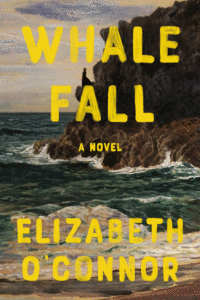
Colm Tóibín’s Long Island, Sathnam Sanghera’s Empireworld, and Kaliane Bradley’s The Ministry of Time all feature among the Best Reviewed Books of the Week.
1. Long Island by Colm Tóibín
(Scribner)
9 Rave • 2 Positive • 1 Mixed
“The characters in Long Island are constantly cautioning themselves not to say anything, for fear of upsetting that fine balance that exists in intimacy as much as in community. But not saying is an act with consequences, too—one that Tóibín, a master of his art, exploits to exquisite effect at the end, leaving us to wonder, yet again, what’s next.”
–Ellen Akins (The Los Angeles Times)
2. The Ministry of Time by Kaliane Bradley
(Avid Reader Press)
5 Rave • 3 Positive • 1 Mixed
“[Bradley’s] utterly winning book is a result of violating not so much the laws of physics as the boundaries of genre … Gradually, as the novel’s carbonated humor fizzes away, sharper elements protrude … Admittedly, Bradley is not a tidy writer. This plot eventually starts to shake like a Radio Flyer wagon traveling at DeLorean speeds. But by then nothing matters but the fate of this asynchronous couple brought together across cultures and eras.”
–Ron Charles (The Washington Post)

3. Whale Fall by Elizabeth O’Connor
(Pantheon)
4 Eave • 2 Positive • 1 Mixed
Read an excerpt from Whale Fall here
“O’Connor’s slim, powerful debut vibrates with elemental, immediate, and palpable scenes and descriptions … Engagingly poetic—though, at times, maddeningly elliptic—the novel interweaves Manod’s canny observations with other villagers’ memories, songs, and folktales … O’Conner’s spare, incisive prose brings the island to vivid life … Beguiling and compelling.”
–Daneet Steffens (The Boston Globe)
**
1. Empireworld: How British Imperialism Shaped the Globe by Sathnam Sanghera
(Public Affairs)
3 Rave • 6 Positive • 1 Mixed
“A nuanced, complicated account of the British empire’s impact on the world as we know it … The raking light that Sanghera throws across the contradictions at the heart of the story of empire doesn’t come without some trepidation for the author … But his larger response is to spell out the complexity of historical assessment with painstaking clarity, showing, repeatedly, the deep entwinement of the positive and negative contributions of empire.”
–Nandini Das (The Guardian)
2. Matrescence: On Pregnancy, Childbirth, and Motherhood by Lucy Jones
(Pantheon)
2 Rave • 4 Positive
Read an excerpt from Matrescence here
“The best book I’ve ever read about motherhood … Experimental flourishes in her text—alongside all that beautiful, accessible writing—also add to its majesty … Essential reading, bloody and alive, roaring and ready to change conversations.”
–Jude Rogers (The Guardian)
3. The Light Eaters: How the Unseen World of Plant Intelligence Offers a New Understanding of Life on Earth by Zoë Schlanger
(Harper)
3 Rave • 1 Positive
Read an interview with Zoë Schlanger here
“Grounded in the history of botany, [Schlanger] lucidly and vividly explains startling findings about plant communication, memory, decision-making, motion, sense (touch, hearing, vision), defenses, kin recognition, altruism, and many other forms of green intelligence … The discoveries Schlanger shares in this involving, vibrant, and affecting dispatch from the vanguard of plant research profoundly expands our appreciation for plants, their essential role in the great web of life, and how recognition of plant intelligence can help us reverse environmental decimation.”
–Donna Seaman (Booklist)

